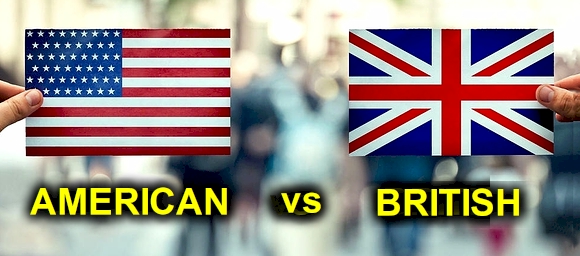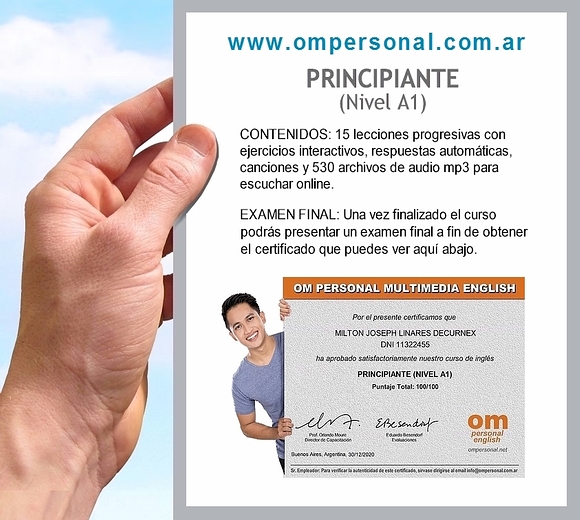Now the VOA Learning English program "Words and Their Stories".
While people in both England and the US speak English, the two types of English can be very different.
VOCABULARY
First, there are
differences in spelling. The British like the letter “u” and have kept it in
many words. Americans have dropped it. Somewhere in our language history, we
decided that LABOR
(LABOUR),
COLOR
(COLOUR)
and FAVORITE
(FAVOURITE)
were just fine without the “u” next to the “o.”
spelling:
ortografía; have kept it: la han conservado; have dropped it: la
han eliminado; labor/labour: trabajo; color/colour: colorx;
favorite/favourite: favorito;
But our
differences go beyond spelling. Sometimes, we use different words entirely.
Here, we live in
APARTMENTS with
ELEVATORS.
Over there, they live in
FLATS
with LIFTS.
go beyond: van
más allá (de la); entirely: completamente; apartment/flat:
apartamento; over there: por allá (en Inglaterra); elevator/lift:
ascensor;
We put
DIAPERS
on our babies and push them in
STROLLERS.
The British love their babies just as much as we do, but they use
NAPPIES
and PRAMS
instead.
diappers/nappies:
pañales; strollers/prams: cochecitos de bebés; just as much as we do:
tanto como (lo hacemos) nosotros;
We power our cars with
GAS.
They use PETROL.
And, if we need to look in our car’s dark
TRUNK
for something, we use a
FLASHLIGHT.
They would use a TORCH
to search their dark BOOT.
we power:
ponemos en marcha; gas/petrol: gasolina; trunk/boot: baúl del auto;
flashlight/torch: linterna; to search: para hurgar o buscar;
USUAL IDIOMS
Then there are
idioms. Some British and American idioms have the same meaning, but use
different words. For example, in the US if you want to add your opinion to a
conversation, you PUT IN
YOUR
TWO CENTS.
In the U.K., they PUT IN
THEIR
TUPPENCE
(or two PENCE)
WORTH. Makes
sense. They have pence and we don’t.
Another example is the idiom about discussing the same issue again and again, especially if it cannot be resolved. We say, DON'T BEAT A DEAD HORSE. The British, on the other hand, advise against flogging one (NEVER FLOG A DEAD HORSE). And, if you are keeping secrets in the United States, YOU HAVE SKELETONS IN THE CLOSET. In Great Britain, your skeletons would be hiding in a cupboard (YOU HAVE SKELETONS IN A CUPBOARD).
issue: tema, tópico; resolved: resuelto, solucionado; don't beat a dead horse/never flog a dead horse: azotar a un caballo muerto (ser una pérdida de tiempo)/nunca azotes a un caballo muerto (es esforzarse en vano); you have skeletons in the closet/you have skeletons in a cupboard: tienes esqueletos en el ropero/tienes cosas negativas que ocultar en el armario;
COMMON EXPRESSIONS
But the real fun begins when we start exploring idioms and expressions that are unique to each country.
we start exploring: empezamos a explorar; that are unique to each country: que son exclusivas de cada país;
Let’s start with BOB'S YOUR UNCLE. To an American ear, that is a weird expression. And it has nothing to do with any relative you may or may not have named Bob. It is just a way to finish a set of simple instructions. What is the equivalent -- the different but equal saying -- in the US? Americans might say, AND THERE YOU HAVE IT. Or sometimes, more dramatic people will say, TA-DA!
Bob's your uncle: esto es fácil de hacer, es muy simple; and there you have it: y ahí lo tienes (es sencillo y fácil); ta-da: expresión que se utiliza para presentar un logro determinado o sorpresa;
For example, imagine you are explaining to someone how to use your new fancy, coffee maker. You explain: “First, you grind the beans. Then you put them in the side container and pour water in the main container. Push the button and ten minutes later -- TA-DA! -- you have a pot of coffee!
you grind the beans: mueles los granos de café; side container: contenedor lateral; pour water: echas agua; main container: contenedor principal; push the button: pulsa el botón de encendido; ten minutes later: diez minutos después;
Sometimes over a fresh pot of coffee, you may want to have a long talk with a friend. You might even throw in a little gossip. We call that a chat, or if it’s a short conversation, CHIT-CHAT. The British would call it a CHIN-WAG.
throw in a little gossip: inicias comentarios chismosos; chit-chat: charla simple; chin-wag: plática o parloteo muy informal;
If a British person says, I'VE GOT THE HUMP, we might think they are sick and need to see a doctor. But in fact, when Brits say they have a hump, it means they are mildly annoyed or upset. In the US, some informal ways to say we are upset are I'M TICKED OFF or I'M MIFFED.
I've got the hump: estoy enfadado/a, malhumorado/a; mildly annoyed or upset: medianamente molesto/a o disgustado/a; I'm ticked off: me pone de mal humor; I'm miffed: estoy ofendido/a, irritado/a;
Now, when Americans are really surprised by something, we can say WE ARE AT A LOSS FOR WORDS. Or more informally, we simply say WE ARE SHOCKED or BLOWN AWAY. Across the Atlantic in the UK, they are GOBSMACKED. In the U.S., we don’t get SMACKED BY GOBS. Ever.
we are at a loss for words: no encontramos las palabras, no sabemos qué hacer, estamos desconcertados; we are shocked/blown away: estamos escandalizados y perplejos; gobsmacked: asombrados; smacked by gobs: escupidos; ever: jamás;
GREETINGS
Finally, a familiar word used by both countries but in different ways is “cheers.” We use the word over drinks when we are wishing someone good health or congratulating an accomplishment. The British use CHEERS to mean “thank you”. For that, we Americans say, THANK YOU!
cheers (UK): gracias/adiós en despedidas cheers (US): (1) salud (gritado justo antes de beber una bebida alcohólica para expresar buenos deseos; (2) agradecimiento;
Now, we don’t expect you to pick sides. Both American and British English have their strong points. But thanks for listening to "Words and Their Stories", a program that teaches American English.
we don't expect: no esperamos; you to pick sides: que usted apoye o se pronuncie a favor (de uno u otro país); both American and British English: tanto el inglés americano como el británico; have their strong points: tienen sus puntos fuertes;
I’m Anna Matteo. CHEERS! I mean, THANKS.
cheers! I mean, thanks!: ¡Salud! quiero decir, Gracias.






